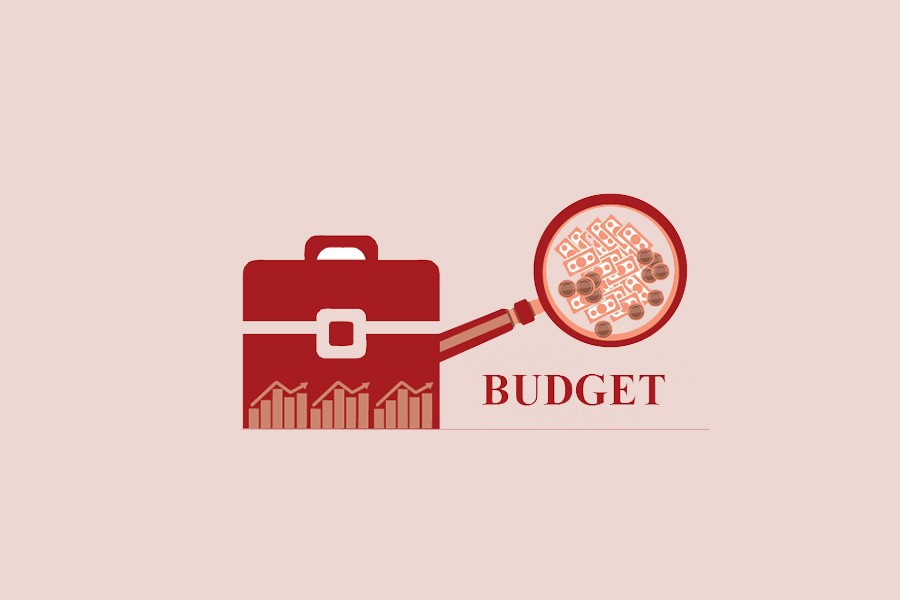'Health, nothing else, should get priority in next budget'
Noted economists, health experts tell BIDS webinar

Published :
Updated :

Noted economists and health experts at a discussion on Sunday suggested adopting balanced policies that would help sustain both 'life and livelihood' amid the Covid-19 pandemic.
Instead of imposing a complete lockdown, they said such policies would help people learn to live with the deadly disease by changing their lifestyle and following health safety guidelines.
Taking part in the discussion, the health experts, economists and government officials also viewed that the lockdown or complete shutdown is an extreme measure that would not be a viable option for a country like Bangladesh.
Bangladesh Institute of Development Studies (BIDS) organised the virtual event titled "COVID-19: Linking Economic and Health Concerns" under the BIDS Critical Conversations 2021.
The speakers said that the country would not be able to manage the pandemic if the situation turns as bad as it is in Delhi or Kolkata.
They urged the government to stop focusing on SDGs or GDP growth target and give special attention to the development of healthcare facilities by increasing allocation for the sector in the upcoming national budget.
Speaking as the chief guest, planning minister Abdul Mannan, however, said the 'allocation-only' policy would not work. "Yes, we have deficiency as we don't have enough money," he said.
Explaining his experience, he said: "Many of us don't have the capacity to spend money even if we allocate it for a purpose … throwing money isn't enough."
He said that his ministry had approved two projects expeditiously with the financial help from the ADB, World Bank and AIIB last year. "But I don't want to talk about this," he said, expressing his frustration over the poor performance by the implementing agencies.
Replying to a question, he said that his ministry's job was to provide fund while the rest lies with the health ministry which is responsible for implementing the projects.
The planning minister also expressed his frustration over the uncertainty in getting the vaccines, but said that the chance has not disappeared entirely.
"A black cloud is hovering over the vaccines," he said, calling upon his colleagues in the government to look East for the vaccines. He said the government would arrange vaccines soon, and talks were on with Russia and China.
He added that it would not be possible to go for herd immunity without ensuring vaccines for all and that the global herd immunity can save the entire world from the pandemic.
He said that the sad part of vaccine is that some countries hoarded three to four times more vaccines than that of their respective requirements.
Prime Minister's economic affairs adviser Dr Mashiur Rahman admitted that the assistance extended by the government during the pandemic did not reach the rural areas due to lack of proper data.
He pointed out that it is difficult from the centre to identify rural people who are in need of such support. It is the local elected representatives or the government administration can only help them identify, he said
He further said that it would be difficult to come out of loan classification even when the pandemic would be over. However, the government may require continuing with such facilities for a longer period of time, he added.
He said the government should not entirely depend on the vaccine import. "Vaccine manufacturing facilities should be developed locally," he added.
Speaking as the special guest, chairman of Centre for Policy Dialogue (CPD) Professor Rehman Sobhan said Bangladesh has the lowest testing rate of Covid-19 in South Asia and may be one of the lowest in the world.
There is a huge black hole in the information system if the rate of testing is not presented in the entire pandemic information management, he said.
He said that the fiscal interventions are highly concentrated in the growth sectors as around 80 to 90 per cent of the parliament members are businessmen and a significant number are from the readymade garment sector.
Mr Sobhan said that it will be difficult to restore discipline in the banking sector as most of the burden of the Covid-19 stimulus packages are on its shoulder while the issue of huge default loans remains forgotten.
Professor Wahiduddin Mahmud said the Covid-19 has revealed how fragile the country's healthcare system is.
He said that lockdown is an extreme measure and it is not viable for the country to manage the pandemic. The government should encourage people to change their habit and lifestyle.
"Wearing masks should be made mandatory and there should be a fine for not complying with it," he said.
Mr Mahmud said the government should keep aside SDGs and GDP target for sometimes and focus on developing the health sector.
Additional director general (Planning and Development) of Directorate General of Health Services (DGHS) Professor Dr. Meerjady Sabrina Flora and policy advisor at a2i (Access to Information) programme of Prime Minister's Office Anir Chowdhury, among other, spoke at the event.
Director general of Bangladesh Institute of Development Studies (BIDS) Dr. Binayak Sen moderated and chaired the event.


 For all latest news, follow The Financial Express Google News channel.
For all latest news, follow The Financial Express Google News channel.